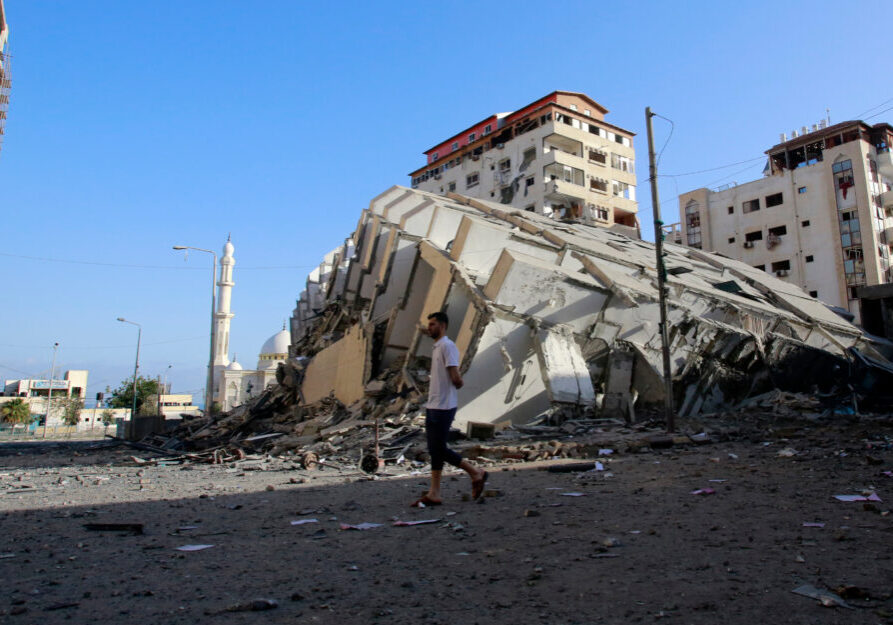Australia/Israel Review
Scribblings: Don’t Worry, be Happy
Jul 1, 2007 | Tzvi Fleischer
Tzvi Fleischer
Don’t Worry, be Happy
It surprises many people who know Israel mostly from the news headlines (and even some Israelis) but Israel remains one of the happiest countries in the world. According to the just released 2006 annual Social Survey by the Israeli Central Bureau of Statistics, 83% of Israelis say they are either satisfied or extremely satisfied with their lives. Israeli Arabs scored slightly lower (78%) than Israeli Jews, but still high by international standards. Moreover, a majority of those surveyed said they expect life in Israel to improve substantially for them over the coming few years.
This is especially worth recalling at a time when there is considerable scepticism and gloom in Israel centred on the political and security system in the wake of both a number of corruption allegations, plus the decision-making shortcomings revealed with regard to last year’s Lebanon conflict. Of course there are problems, which are being democratically addressed. But as a society, Israel is clearly doing something right. With respect to the most important measure of societal success, the personal happiness of its citizens, it is scoring quite well.
Poll Positions
Speaking of polls, there has been a lot of comment, both in Australia and internationally on some recent Pew Research Centre opinion polling of the Muslim community in the US. Suffice it to say that the results were mixed. It showed most American Muslims were moderate and peaceful, more than in Europe or most Middle Eastern countries. On the other hand, it showed worrying trends, especially among younger Muslims – 25% believed suicide bombings were at least sometimes justified. And 28% of all those surveyed said they did not believe Muslims carried out the Sept. 11 attacks, while another 32% said they did not know.
In a recent poll which received much less attention, Britain’s Channel 4 found that 24% of British Muslims did not believe the four named bombers were responsible for the 7/7 attacks which killed 52 people on London public transport in 2005. The same number said that the security services or government were involved in the bombings. This is despite the fact that not only is there surveillance video of the four bombers, but two bombers made suicide videos explaining their plans.
Obviously, such conspiratorial beliefs open up a huge gap between Muslims and non-Muslims in the West. As long as large minorities of Muslims continue to believe that not only Western actions against Muslims, but also Islamist-inspired terror attacks on non-Muslims are part of a campaign to victimise Muslims, no real meeting of minds about terrorism and the responses to it is possible. All Western reactions, such as the wars in Iraq and Afghanistan and tightened anti-terrorism laws, become not merely mistakes or over-reactions, but more proof of how Western governments and peoples are irredeemably hostile to Muslims.
A Muslim academic, Professor Ziauddin Sardar, interviewed by Channel 4 following the poll, explained what is going on thus: “If you have a victimhood mentality, then conspiracies come into play.” This is indeed about a victimhood mentality being instilled by terrorist supporters and Islamic extremists.
The sources of this victimhood mentality are partly explained by a new report published by the US Institute for Peace, “Correlates of Public Support for Terrorism in the Muslim World”, based on a survey of support for terrorism in 14 predominantly Muslim countries. It found no correlation between either education or the economic state of the country and terrorism – terrorism is clearly not about either poverty or ignorance.
The two most important attitudinal correlates with terrorism were a support for an increased role for Islam in politics, and anti-Americanism. While some will doubtless claim that this last point proves it is American foreign policy driving terrorism, the study make this clear that this is not necessarily so. It argues:
It may well be that people support terrorism because they perceive there to be a threat to Islam from the United States. But the relationship could also work the other way. Terrorism is, among other things, a tool of propaganda. One of the key messages of Islamic terrorists is anti-Americanism. Thus, if terrorism is an effective tool of propaganda, it may be that people who support terrorism (for whatever reason) end up having strongly anti-American sentiments because they are persuaded by the terrorists’ message. Another, related, explanation argues that people who support terrorism have a psychological need to justify this support. As a result, they adopt views that ‘rationalise’ their support for terrorism…
The second correlate, support for Islamisation of society, supports this second interpretation. People appear to be buying the whole Islamist ideological package, involving demands for Islamisation, anti-Americanism, and support for terrorist means. This is also where the “victimhood mentality” likely comes from – this whole worldview is not only prone to see Muslims and non-Muslims as inevitably at odds, it does not admit that non-Muslims have any legitimate concerns in the competition.
The lesson is that Islamist ideology as the basis for terror must be confronted as a complete ideology, not a set of grievances. A victimhood worldview which manages to make even terrorist attacks by Muslims on non-Muslims into yet more examples of Muslim victimisation will not be swayed from the mindset by any conceivable effort to conciliate the legitimate concerns Muslims may have.
![]()
Tags: Iraq






